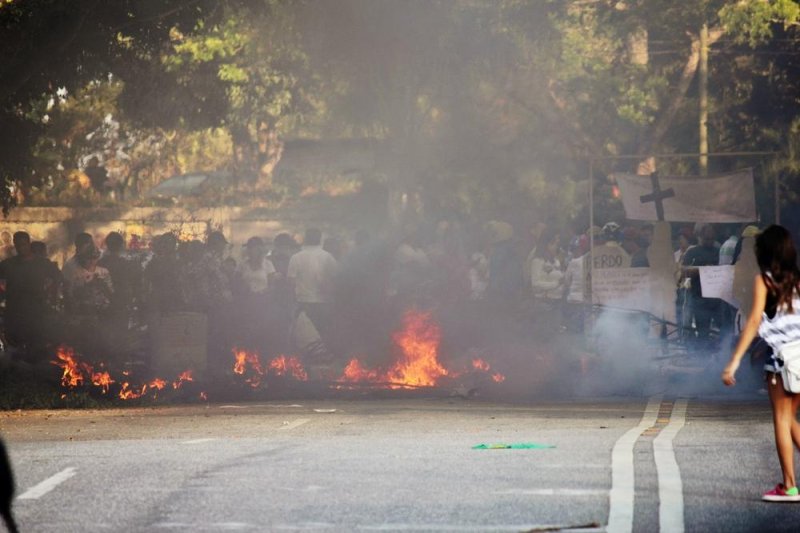It gets worse by the day. There has to be a revolution in the near future unless Cuba or some other country steps in to prop up the socialist dictatorship.
Over the weekend, six members of the Venezuelan military were detained by local authorities for stealing goats, the Venezuelan newspaper El Nacional reported Sunday. It said the soldiers confessed to stealing the goats and said they did it to feed themselves, since they had no food left in their barracks.
Story w/links @ Venezuelan troops going hungry, steal goats to feed themselves
Over the weekend, six members of the Venezuelan military were detained by local authorities for stealing goats, the Venezuelan newspaper El Nacional reported Sunday. It said the soldiers confessed to stealing the goats and said they did it to feed themselves, since they had no food left in their barracks.
Story w/links @ Venezuelan troops going hungry, steal goats to feed themselves

